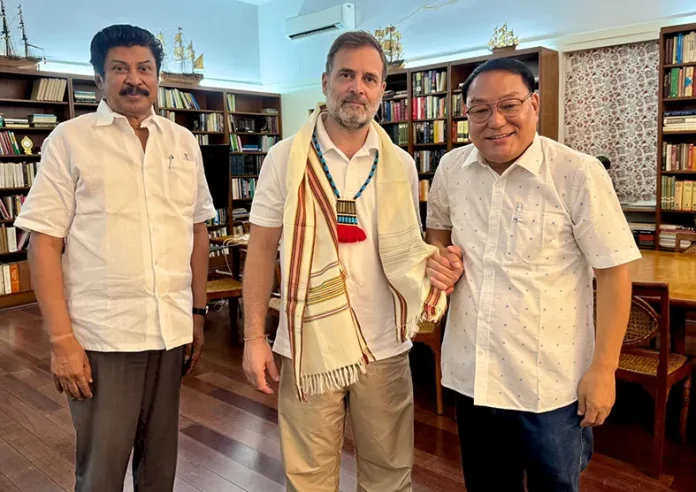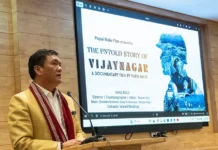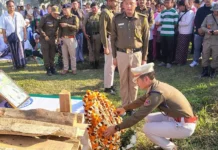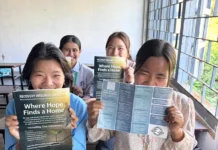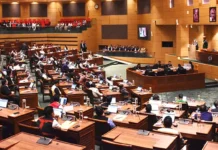NEW DELHI, 31 Jul: Arunachal Pradesh Congress Committee (APCC) president Bosiram Siram called on Leader of Opposition in the Lok Sabha Rahul Gandhi at his 10 Janpath residence here and apprised him of several key constitutional, developmental, and people-centric issues concerning Arunachal Pradesh.
Highlighting the need to modify Article 371(H), Siram presented a comparative analysis with Article 371(A) of Nagaland and Article 371(G) of Mizoram, highlighting that unlike these states, Arunachal lacks autonomy over land and natural resources under Article 371(H).
He expressed concern that due to this legal deficiency, the indigenous tribal people of Arunachal are deprived and do not have rightful ownership over their “jal, jungle, and zameen.”
He also pointed out that in various developmental projects, like hydropower, coal and mining, oil exploration, dolomites, etc, the state holds only 10% equity share, while the Centre and project developers hold 90%. “This imbalance severely affects the state’s development, employment-creation for educated unemployed youths, and planning in priority sectors,” Siram said, and requested Gandhi to take necessary steps for modifying Article 371(H) and enhancing the state’s equity share in such projects to ensure constitutional justice and economic empowerment for the people of Arunachal.
Gandhi on his part acknowledged the gravity of the matter and assured Siram that he would take up the issue seriously “as it is a significant concern for the people of the state.”
The APCC president also raised the matter of the proposed Siang Upper Multipurpose Project (SUMP). He highlighted that this mega dam project over the Siang river, with a 11,000 mw capacity and a proposed height exceeding 300 metres, is facing stiff resistance from the indigenous tribals of many Siang districts. “It would affect populations downstream in Arunachal, as well as in Assam, as more than 27 villages would submerge, indigenous inhabitants would be dislocated, and the ecology and demography would be affected,” he said.
Siram told Gandhi that the submergence of 27 villages would lead to large-scale displacement of the project-affected indigenous inhabitants in the Siang belt districts, and submerge sacred cultural landmarks such as Kekar Monying, “a historical Adi heritage site where there was a war between the Adi tribe and the British.”
Forceful attempts to build the SUMP is a breach of rights under Article 371(H), the Panchayats Extension to Scheduled Areas Act), 1996, and the UN Declaration on the Rights of Indigenous Peoples, Siram said.
While clarifying that the Congress party is not against development or dam projects, he emphasized that the party’s opposition is only to “mega and big dams of abnormal height which pose an existential threat to indigenous habitations, agricultural lands, and emotional attachments tied to ancestral villages.”
He urged Gandhi to “take a balanced and people-centric view on the SUMP, considering both environmental and socio-cultural consequences.”
Gandhi assured Siram that he would seriously examine the matter, calling it a major local issue that deserves national-level attention.
Siram further raised the issue of the new pension scheme, which is market-linked and fails to guarantee fixed pensions to government employees. He called for the re-implementation of the old pension system to ensure post-retirement security for thousands of state employees.
Towards the end of the meeting, Siram invited Gandhi to visit Arunachal, which Gandhi accepted.

